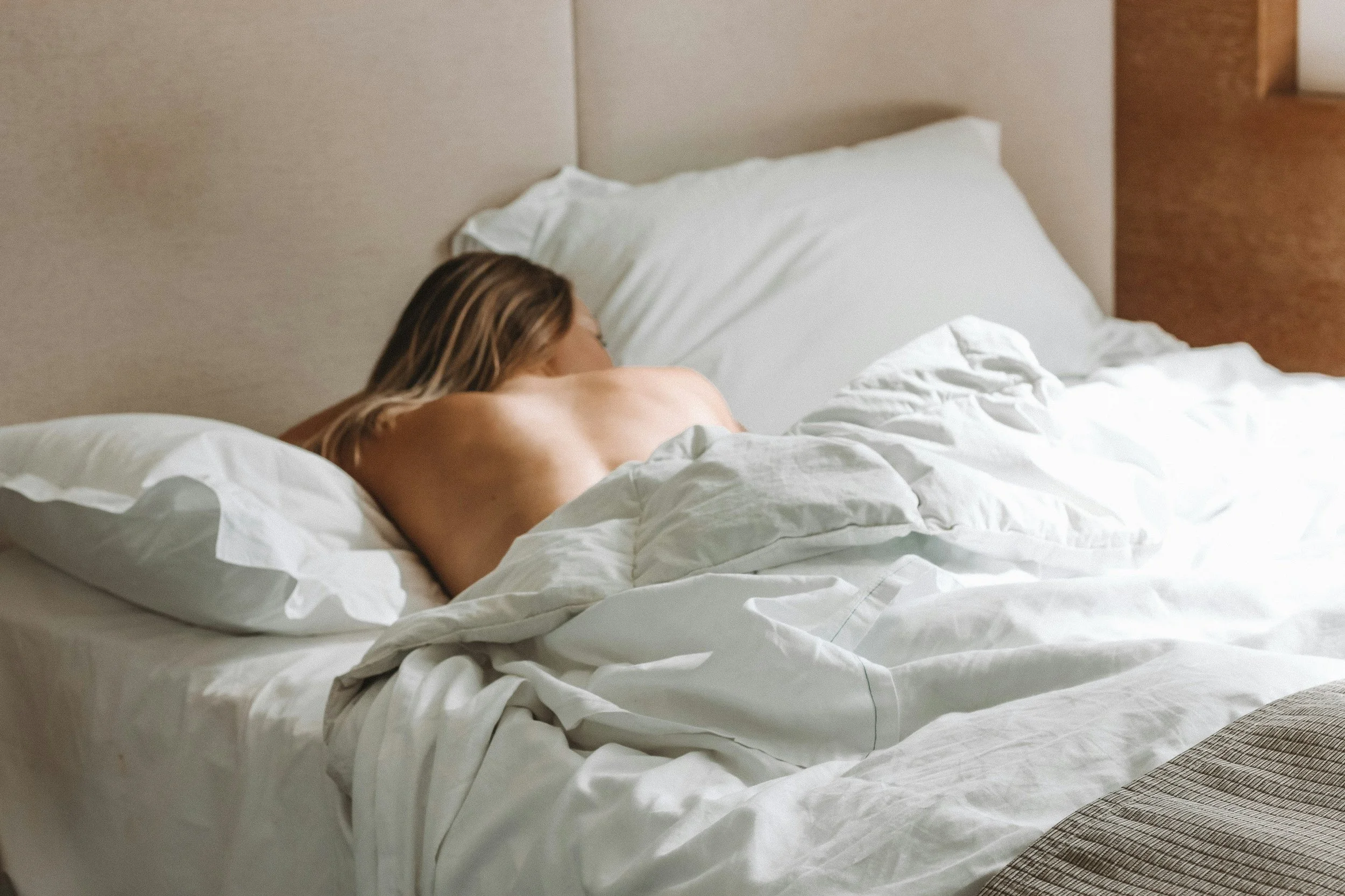Women need more sleep than men — here’s why
We’re told we all need an average of eight hours sleep a night but with hormones, periods, and statistically fewer free hours, it’s likely that actually women need more sleep. Alice Wade talks to experts to understand.
Credit: Unsplash, Maddi Bazzocco.
When it comes to sleep, it’s fair to say that most of us would like more of it. I would dare anyone to say they’ve never snoozed their 6am alarm or almost fallen asleep at their desk after staying up past their bedtime.
Like or lump it (probs need more of it), sleep is considered one the three pillars of health alongside decent nutrition and exercise. No matter how many green juices you snaffle, or half marathons you jog, if you’re not getting enough kip your health will ultimately suffer. But how much sleep do we actually need?
According to the experts, everyone should be aiming for between seven-nine hours a night but while this number tends to work for men, gaps in sleep research conducted on women might suggest that this actually isn’t enough for everyone.
Recent statistics show a shocking number of people in the UK are currently sleep deprived with some estimating up to three in four people. The impacts are palpable: loss of functionality, brain fog, lower immunity, as well as links to chronic health problems like heart disease and depression.
And the impacts could be even worse for women who, according to a 2016 study, need on average 20 minutes more sleep than men. Jim Horne, a sleep expert who conducted the study, put this down to the high proportion of brain power needed by women, whose brains, he says, work harder than mens. He theorises that more multitasking and performing a greater load of household labour means that women’s brains need more time to reset after a long day.
“The impact of sleep deprivation was much worse for women, who reported feeling higher levels of psychological distress”
Due to disparities in labour division, women do tend to take on a higher physical workload which could contribute to their greater need for sleep. A 2018 ONS study found that in married heterosexual couples, men have an average of five hours more leisure time a week because their wives pick up the majority of the slack when it comes to household chores. Doing five hours of household overtime would undoubtedly make anyone sleepier.
Socialising may also play a role. According to Dr Chelsie Rohrscheib, Head Sleep Expert and Neuroscientist: “On average, women tend to be more social than men and research has shown that longer socialisation time equates to needing more sleep. Likely because it requires more activation from certain areas of the brain.”
Evidence from Horne’s study also showed that the impact of sleep deprivation was much worse for women, who reported feeling higher levels of psychological distress including more hostility, depression, and anger.
An understandable result if we take into account the recent study that suggested women get on average three hours less sleep a night than men. A whopping 50% also reported feeling constantly sleep deprived.
These greater symptoms of psychological distress might ring bells for some. Probably because they all mimic the symptoms of PMS or PMT – premenstrual tension. Feeling groggy, sad, and generally pissed off are all classic hallmarks of premenstrual syndrome.
According to Dr Rohrscheib, it’s because of hormonal changes during this period that our sleep can worsen, bringing out symptoms synonymous with PMS. “Progesterone, for example, can make women feel sleepy and low in energy when it's at its highest levels in the body,” she says.
The effects are compounded further because we become less sensitive to melatonin, the sleep-inducing hormone, meaning that it can be harder to drift off at night before our period.
Since 80% of women have period pain at some stage or another – 10% to a life-disrupting degree – it's also likely that this contributes to poorer quality of sleep, which makes women more prone to tiredness.
It can be easy to forget just how drastic hormonal differences are across men and women and how much this can impact the sleep we need at different times. While women endure a 28 day slog of ups and downs, men are left to manage just a 24 hour turnover. It’s for this reason that lots of men can spring out of bed in the morning and nestle into the sheets at night; their testosterone turnover literally sets them up for it. Meanwhile, though plenty of women find themselves catapulted out of bed during ovulation, they quickly become reliant on the snooze button come the luteal phase.
As with literally everything, there is no clear-cut rule for any individual. You may be a sleepy man who needs 10 hours to feel themselves, or a woman who needs no more than six to slay (I’m jealous).
What’s important is calibrating your sleep with your body and your needs. For women, this likely has a lot to do with the stage cycle you’re in and it’s important to nurture your needs accordingly. Whatever it is you need, remember that without sleep, we are all but ghastly, pale, and miserable. So sleep those extra couple of hours, and make your man do those chores (biology is feminist after all).
Sweet dreamzzzzzzzzzzzzz.


